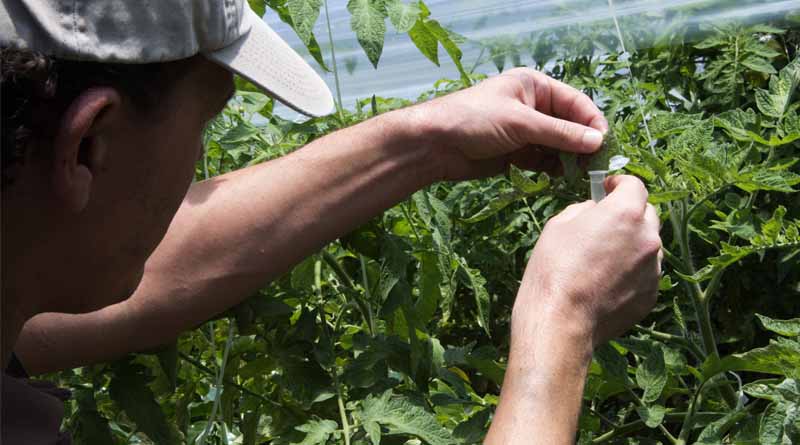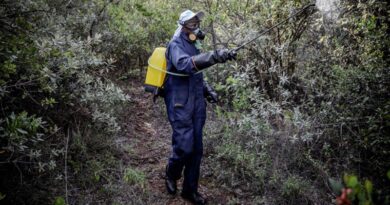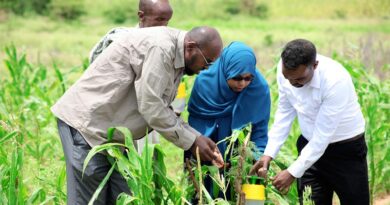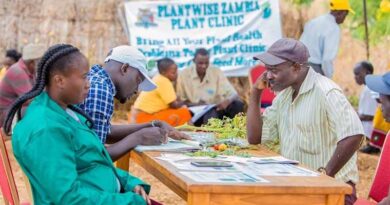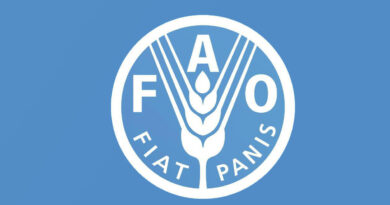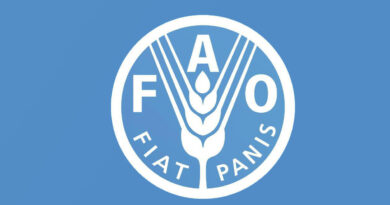Plant Health Governing Body Meets on Further Measures to Curb Pests and Diseases
16 April 2024, Rome: The FAO Commission on Phytosanitary Measures (CPM), a key body aimed at curbing the risks posed by plant pests and diseases that threaten agriculture and livelihoods and damage our ecosystems, convened today to discuss further measures to stop their spread.
“The consequences of unchecked pest and disease outbreaks are far-reaching and can inflict irreversible damage on ecosystems, trade, and the global food supply,” QU Dongyu, Director-General of the Food and Agriculture Organization of the United Nations (FAO), said in his opening address to the 18th Session of the Commission.
The CPM is the governing body of the International Plant Protection Convention (IPPC), convening annually to assess the global state of plant health and review progress towards achieving the Convention’s objectives. In 2023, IPPC welcomed the Federal Republic of Somalia as the 185th contracting party to the multilateral treaty.
Assessing climate change impact on plant pests
Changing weather patterns and rising temperatures across the world have changed the geographic distribution and intensity of plant pests and diseases. This makes the work of the CPM in facilitating international cooperation and information exchange on early detection, rapid response, and coordinated control efforts indispensable, Qu underlined.
One example of a destructive plant disease is caused by the fungus Fusarium Tropical Race 4 (TR4). The extensive damage it inflicts on banana crops was highlighted at the World Banana Forum’s 4th Global Conference, recently hosted by FAO. Exacerbated by the impacts of climate change, yield losses due to TR4 affect more than 400 million farmers, producers and rural households who depend on this staple crop.
The IPPC is working together with FAO to help banana-producing countries combat TR4. The IPPC Secretariat coordinates the global efforts to prevent the entry and spread of TR4. In addition to raising awareness on TR4 and conducting simulation exercises in various countries, IPPC has produced a guide to effectively prevent, prepare for, and manage TR4.
At the COP28, FAO launched the “Global Roadmap for Achieving Sustainable Development Goal 2 (SDG2) without Breaching the 1.5°C Threshold“. One of the domains of action identified in the Roadmap is the protection of crops using integrated pest management to reduce reliance on chemical products. The FAO Director-General underlined the important contribution made to the FAO initiatives by CPM’s work on managing the impact of climate change on plant health.
Plant health: a critical component of One Health
Among the topics on the agenda at this week’s CPM meeting will be positioning IPPC within the One Health approach, which brings together international organizations working on plant, animal and human health.
Participating countries are also expected to adopt amendments to phytosanitary standards, including criteria to determine host status of fruit to fruit flies, the requirements for establishing pest free areas, and cold treatment for a pest called false codling moth.
CPM is further expected to endorse the Africa Phytosanitary Programme, designed to empower national governments and stakeholders with the scientific evidence and state-of-the-art technology necessary to effectively manage plant pests of regulatory, environmental, and economic significance.
The IPPC ePhyto Solution has proven that safe trade can be expedited through digital phytosanitary certification. By December 2023, more than five million (5 000 000) ePhyto certificates were successfully exchanged by 88 active user countries, while the total number of registered countries has increased to 128.
Although there is a strong global focus on food safety and animal health standards to ensure food security, “we must remember that it all starts with plant health standards,” the FAO Director-General said, describing them as the “guard rails” against the impact of plant pests and diseases.
Also Read: ADAMA Launches New Cereal Fungicide Maganic®
(For Latest Agriculture News & Updates, follow Krishak Jagat on Google News)

